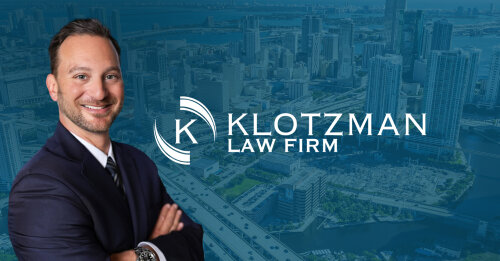Best Work Injury Lawyers in New York City
Share your needs with us, get contacted by law firms.
Free. Takes 2 min.
List of the best lawyers in New York City, United States
1. About Work Injury Law in New York City, United States
In New York City injuries arising on the job are governed by the New York State Workers’ Compensation Law. This system is designed to provide medical care, wage replacement, and other benefits to employees who suffer work-related injuries or illnesses. The program is administered by the New York State Workers’ Compensation Board (WCB).
Benefits are typically paid regardless of fault, which means you do not need to prove your employer was negligent to receive medical coverage and wage support. The system also covers survivors' benefits for dependents in the event of a work-related death. Workers’ compensation is generally the sole remedy for on-the-job injuries, but there are important exceptions explained later in this guide, such as third-party claims.
In New York City, as in other parts of the state, most work injuries involve hospital visits, ongoing medical care, and potential impairment ratings. The WCB coordinates claims, medical treatment, and hearings when disputes arise. Timely reporting and proper paperwork are crucial to keep benefits flowing smoothly.
Key sources: New York State Workers’ Compensation Board - wcb.ny.gov, Occupational Safety and Health Administration - osha.gov, U.S. Bureau of Labor Statistics - bls.gov/iif.
According to the New York State Workers’ Compensation Board, the system provides medical care and wage benefits to workers with job-related injuries and illnesses.
2. Why You May Need a Lawyer
Below are concrete, NYC-specific scenarios where consulting an attorney who specializes in Work Injury law can be essential. Each example reflects common real-world issues faced by workers in New York City.
- Claim denial or benefit termination after an injury on a Manhattan construction site. The insurer may dispute your need for continued medical care or wage replacement, triggering a complex appeal process that benefits from legal guidance.
- Disputed medical treatment or impairment rating after a knee injury from a fall at a Brooklyn warehouse. You may need an attorney to obtain the right medical evaluations and ensure the board adopts an accurate impairment rating for benefits.
- Third-party liability on the job where a forklift collision caused by a supplier's employee injures you. You can pursue a separate third-party claim in addition to workers’ compensation to recover non-economic damages or out-of-pocket costs.
- for a worker who believes they are misclassified as an independent contractor. An attorney can assess eligibility for workers’ compensation and potential related claims.
- when light-duty or modified-work options are needed but not offered. A lawyer can help negotiate suitable arrangements and documentation.
- after a work-related fatality in a NYC environment such as construction or transit services. An attorney can guide dependents through survivor benefit claims and filings.
3. Local Laws Overview
New York work injury matters hinge on a mix of statute, regulation, and administrative guidance. The core framework includes the following two to three key sources, which apply throughout New York City as well as the rest of the state.
- Labor Law Article 9 - Workers’ Compensation: The primary statute governing workers’ compensation benefits in New York. It sets out the entitlement to medical care, wage replacement, and related benefits for work-related injuries and illnesses. This law applies statewide, including New York City.
- 12 NYCRR Part 300 et seq. - Regulations of the New York State Workers’ Compensation Board: These regulations implement the Workers’ Compensation Law. They cover claim filing, notices, medical treatment guidelines, hearings, and appeals. The regulations are updated periodically to reflect changes in policy and practice.
- OSHA recordkeeping and reporting requirements (29 CFR 1904): While OSHA is a federal agency, its recordkeeping and reporting rules affect NYC workplaces as well. Employers must maintain records of injuries and illnesses and report certain events to OSHA where required.
Recent trends and practical updates: New York has emphasized timely medical treatment, return-to-work processes, and clearer guidance for disputes at the board level. It is important to verify current rules on the WCB site, since regulations and MTGs are periodically updated. WCB and OSHA provide current, authoritative information for workers and employers.
4. Frequently Asked Questions
What is workers' compensation in New York City? Workers' compensation is a no-fault program that pays medical care and wage benefits for work-related injuries and illnesses. It is administered by the New York State Workers’ Compensation Board.
What is the typical deadline to report an injury?
Notify your employer as soon as possible, ideally within 30 days. Your employer must file a report with the board, and you should file a claim promptly with the WCB.
Do I need an attorney for a workers’ compensation claim?
While you can file without one, a lawyer who specializes in work injuries can help with claim filing, medical evidence, and appeals. Complex cases often require legal counsel to protect benefits.
How do I file a workers’ compensation claim?
You typically file Form C-3 (Employee’s Claim for Workers’ Compensation Benefits) with the WCB, after notifying your employer. Your attorney can assist with gathering medical records and coordinating deadlines.
What happens if my claim is denied?
You have the right to appeal the decision. An attorney can help prepare the appeal, present new evidence, and represent you at hearings.
Can I sue my employer for a workplace injury?
Usually no, because workers’ compensation is the exclusive remedy. There are exceptions for certain third-party claims or if other legal theories apply.
How much wage replacement can I receive?
Wage replacement depends on your earnings and the degree of impairment. A workers’ compensation attorney can estimate benefits based on your income history.
What is a medical impairment rating and why does it matter?
A medical impairment rating determines the extent of disability from the injury and can affect the duration and amount of benefits. Accurate medical evidence is essential.
Do I need to see a doctor chosen by the employer or the board?
In New York, you generally select treating physicians who are authorized to provide osteopathic or allopathic care. Your attorney can explain the appropriate medical network and guidelines.
What should I do if my injury happened while I was traveling between job sites?
In many cases, injuries occurring during authorized work-related travel are compensable. An attorney can assess the specific facts to determine eligibility.
What is the difference between a workers’ compensation claim and a third-party personal injury claim?
Workers’ compensation covers benefits regardless of fault; a third-party claim seeks damages from others whose negligence caused the injury. You may pursue both if applicable.
How long does the process typically take in NYC?
Simple cases may resolve in a few months; complex disputes can take 6-12 months or longer, especially if hearings and appeals are involved. An attorney helps manage timelines.
5. Additional Resources
Useful, official sources for work injury information and guidance in New York City include:
- New York State Workers’ Compensation Board - administers workers’ compensation claims, provides guidance on filing, medical treatment, and appeals. wcb.ny.gov
- Occupational Safety and Health Administration (OSHA) - federal agency with requirements for workplace safety, injury reporting, and compliance guidance. osha.gov
- Bureau of Labor Statistics (BLS) Injury and Illness Data - national statistics that help illustrate workplace safety trends, including in construction and service industries common in NYC. bls.gov/iif
6. Next Steps
- Document the incident gather medical records, incident reports, photos, and witness statements as soon as possible after the injury. Complete the incident log within 3 days if available.
- Notify your employer in writing within 30 days of the injury, and keep a copy for your records. Ask for confirmation of receipt.
- Consult a NYC workers’ compensation attorney to review your case, assess third-party claims, and plan a strategy. Schedule a consultation within 1-2 weeks of the incident if possible.
- File the claim with the WCB using Form C-3 and ensure your employer files the required Form C-2 or equivalent notice on request. Do this within 2 years of the injury or when you first became disabled.
- Follow medical guidelines and attend scheduled hearings as directed by your attorney and the WCB. Keep all appointments and records organized.
- Monitor benefit decisions and appeal if needed within the timelines specified by the WCB. Your attorney can help prepare appeal briefs and evidence.
- Consider third-party claims if applicable consult with your attorney about pursuing non-employee claims against others whose negligence caused the injury.
Lawzana helps you find the best lawyers and law firms in New York City through a curated and pre-screened list of qualified legal professionals. Our platform offers rankings and detailed profiles of attorneys and law firms, allowing you to compare based on practice areas, including Work Injury, experience, and client feedback.
Each profile includes a description of the firm's areas of practice, client reviews, team members and partners, year of establishment, spoken languages, office locations, contact information, social media presence, and any published articles or resources. Most firms on our platform speak English and are experienced in both local and international legal matters.
Get a quote from top-rated law firms in New York City, United States — quickly, securely, and without unnecessary hassle.
Disclaimer:
The information provided on this page is for general informational purposes only and does not constitute legal advice. While we strive to ensure the accuracy and relevance of the content, legal information may change over time, and interpretations of the law can vary. You should always consult with a qualified legal professional for advice specific to your situation.
We disclaim all liability for actions taken or not taken based on the content of this page. If you believe any information is incorrect or outdated, please contact us, and we will review and update it where appropriate.

















